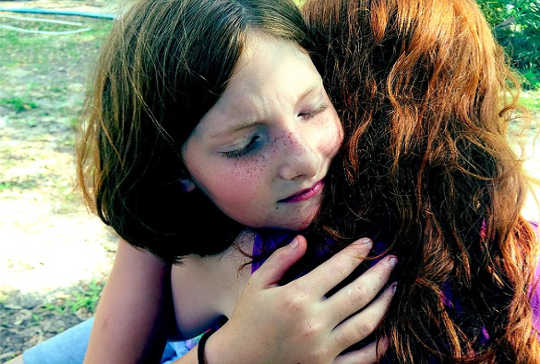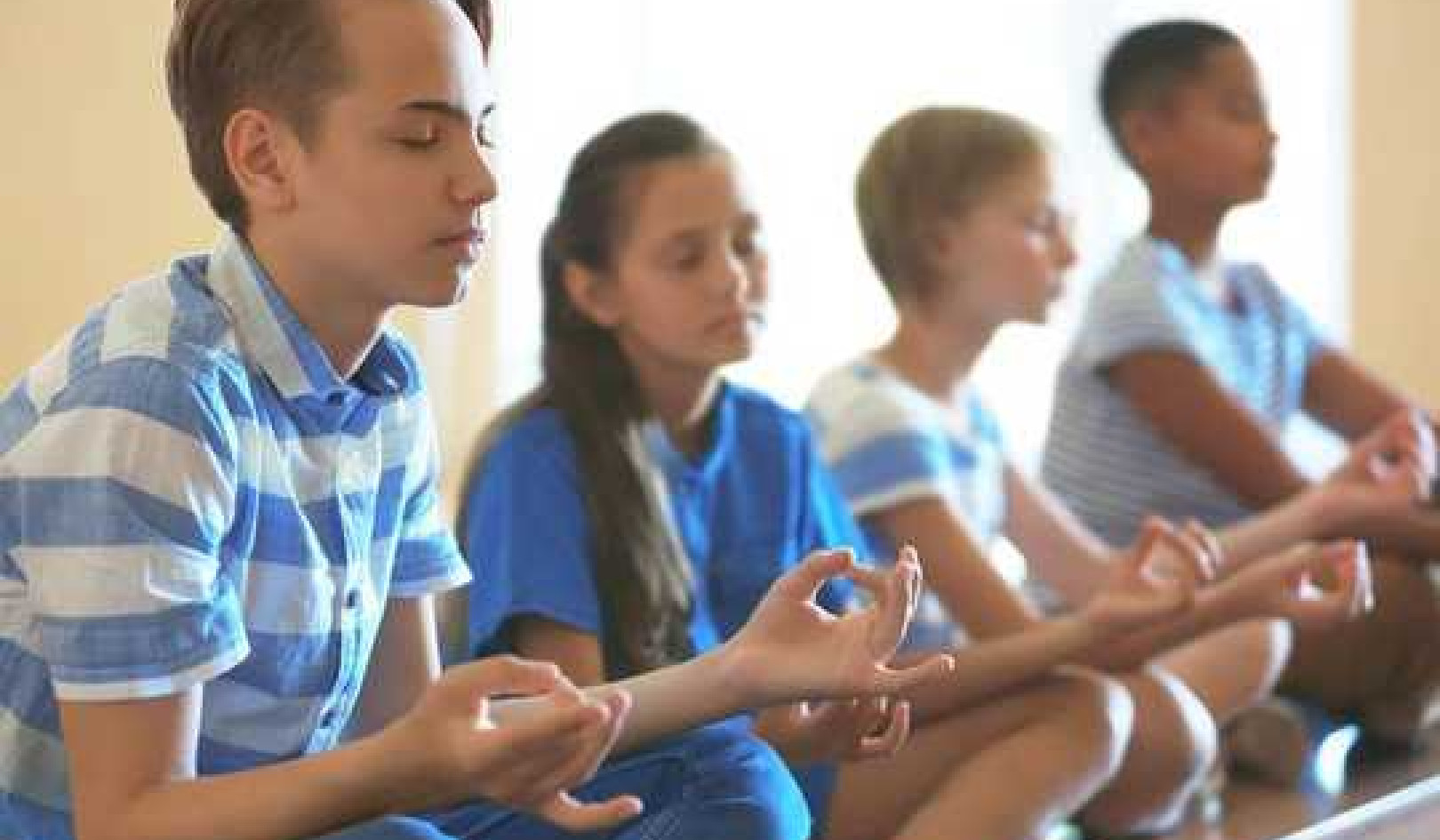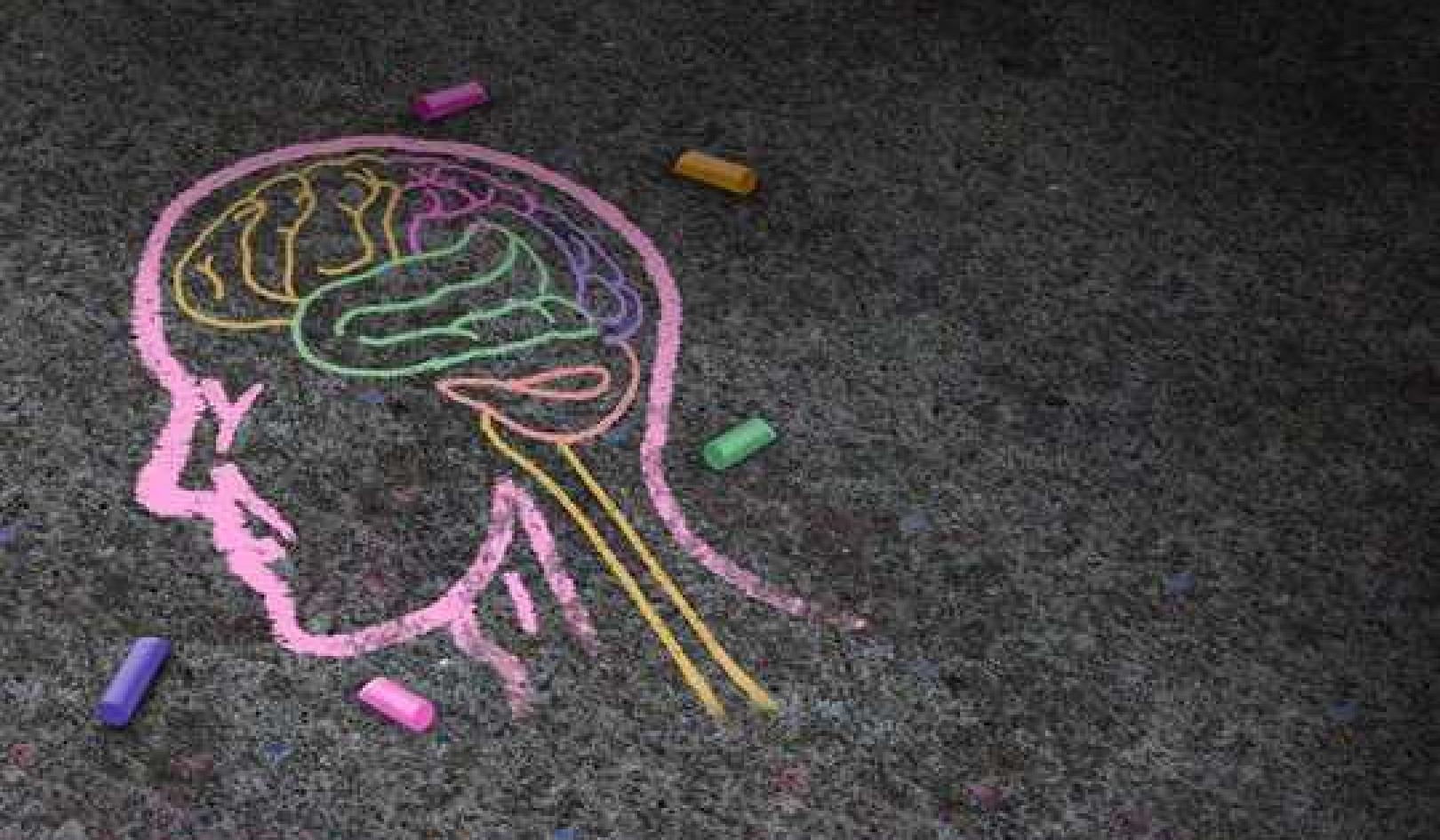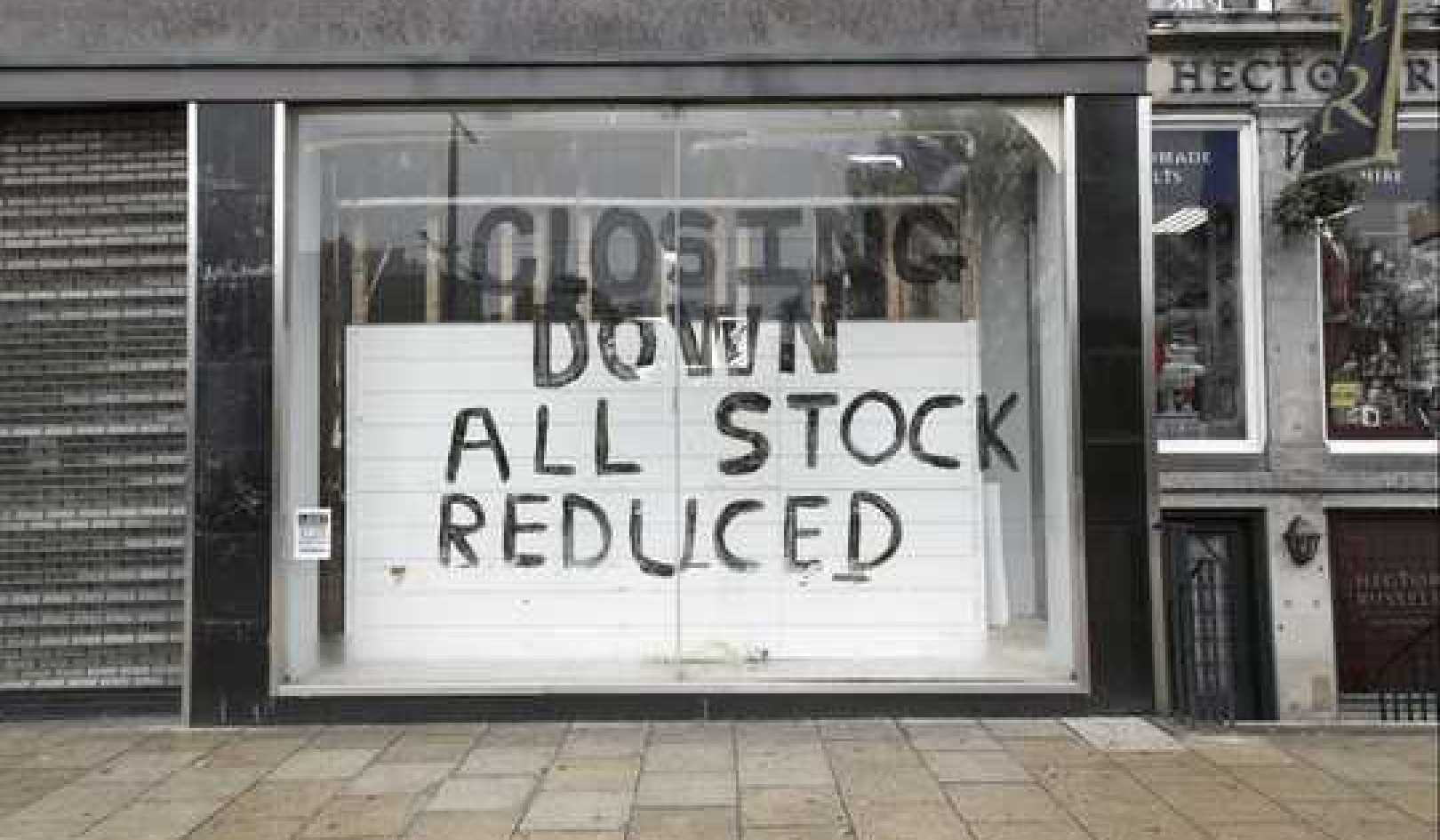
I sat down for my flight to Los Angeles and noticed, even before buckling up, that the woman sitting across the aisle from me seemed upset. She stared at the seat in front of her, eyes glazed over with sadness, and clutched a crumpled kleenex with which she dabbed at her eyes and nose repeatedly. She had either just finished crying or was about to start. Perhaps both.
I wanted to hug her.
The aisle emptied of passengers making their way to their seats, and I glanced again at the woman, pulled in by her sadness. I considered handing her a fresh tissue or asking her if she was okay, even though I knew she wasn't. Anything to let her know she wasn't alone.
But I've cried on planes more times than I can count, for any number of reasons (usually the movie), and the last think I would've wanted was for someone to try to talk with me through my tears. I decided it was best, right then, to give her some space, so I didn't say anything.
While I was deliberating what to do, one of the flight attendants -- a bright-eyed African-American woman with thick blonde braids and a giant smile -- spotted the woman and walked right up to her. She saw someone in pain and responded instinctively.
"Honey, what's wrong?" she asked the woman, who was at least fifteen years her senior.
The woman hesitated, her eyes welling up. "My father died last week," she replied, choked up. I assumed she was on her way to or from his funeral.
The flight attendant bent over, grabbed the woman's hand, looked her right in the eyes, and said, "I've been there, honey. I've been there." She opened her arms, and the woman leaned into them, her tears falling freely then. The flight attendant held on to her, and there they stayed for many seconds, two strangers intimately connected by their shared experience of having lost a father. Two human beings not just seeing but feeling each other.
The flight attendant released the woman from the hug but held both her hands tightly. "I'm gonna be checking on you all the time, but you speak up if you need anything at all, okay?"
The woman nodded.
"Anything, I mean it," the flight attendant said.
"Thank you , sweetheart," the woman replied.
The flight attendant walked to the front of the plane to prepare for takeoff, and the crying woman closed her eyes and tilted her head ever so slightly downward. As if in prayer.
The Difference Between Sympathy and Empathy
There's a huge difference between sympathy and empathy, between "I'm sorry" and "I've been there." It's not that sympathy is bad. It's just that empathy invites a connection that sympathy simply can't. Sympathy says, "I feel sorry for you." while empathy declares "I am you."
Sympathy encourages us to find compassion, from a distance, for another's misfortune. Empathy demands that we revisit our own pain in order to relate to someone else's. Sympathy requires our kindness. Empathy requires our vulnerability.
The flight attendant made it clear to the woman that she wasn't alone in her loss. "I've been there, honey" removed any separation that "I'm so sorry, honey" might have created. I suspect the crying woman felt understood rather than just pitied for her grief. The difference was profound.
Empathy Helps
Consider situations in which it helped immensely to know that others could relate to what you were going through. After a brutal breakup, we don’t want someone who’s never had their heart broken telling us to get over it. We want to sob to a friend who knows the grief of a broken heart and the time it can take to move on.
If you’re a parent being driven crazy by your toddler, you may not seek out your single friends to commiserate, not when you’ve got other struggling parent friends who really get what you’re going through. It’s comforting to be heard; it’s empowering to be understood.
The Longing For Empathetic Connection
Human beings don’t long just for connection; we long for empathetic connection.
When we can relate to someone going through a difficult time, when we can empathize with her struggle, we serve her by letting her know. I’ve spoken with thousands of people over the years about my parents’ murder, almost always to a reaction of shock, and then sympathy. I’ve cried into the arms of close friends who would’ve sold their souls to take away my pain. Their compassion and love touched me deeply, of course, and I’m grateful to have had so many loved ones with whom I could unravel.
But something entirely different happens when I encounter others who lost their parents when they were young. Others who understand what it’s like to live most of their lives without a mom and dad, or who know the pain of losing a loved one to murder. Others who have been there. In our shared experience, we can offer each other the distinct — divine — comfort of empathy. This is how we help each other feel less alone in our individual struggles.
Empathy Eliminates Separation
Empathy eliminates separation. It fosters connection. That’s the thing about being human — we are all each other. Even when we can’t relate to the exact same situation as another, we can still make an effort to empathize. We have probably lived some version of being there.
Heartache is heartache, after all. Anger is anger. Grief is grief. We have all walked the path between joy and sorrow, stopping at every emotion along the way.
Empathy asks us to be willing to share ourselves with each other, willing to be vulnerable and speak about our pain so that others feel the freedom to speak about theirs.
Empathy Is A Gift, To Give And To Receive
One of the things I love most about my Facebook community is our willingness to empathize with each other’s experiences. When people post about depression, addiction, chronic pain, grief, anxiety, or whatever else, others respond with comments that make it clear to those who shared that they are not alone. They have been there, too.
The point is not to hijack someone else’s experience, or to drone on about our own struggles, but to respond in a way that lets others know they’re not mutants for feeling the way they feel. Likely, many of us have experienced whatever they’re experiencing, or something very similar.
Healthy Connections Call For Empathy
Just think about our crazy planet. So much of the disconnection we see in our world, so much of the division and anger that exist between human beings, could be alleviated by a more conscious attempt -- by all of us -- to be more empathetic.
We're all judging and screaming at each other about how wrong everyone else is and how right we are, without really taking the time to consider each other's experience.
How much more peaceful would our world be if we stopped to imagine what it's like to walk in each other's shoes? Or if we simply acknowledge it when we already have?
Without judgment or having to agree with a person's choices, and without needing to have experienced whatever it is they're going through, we can always choose to empathize. We can declare, "I've been there" or that we're doing our best to imagine what it's like to be there.
Empathy Takes Practice
Empathy is a conscious choice and, like all conscious choices, it takes practice, The more we do it, the better we become at it -- until empathy, rather than just sympathy, is our go-to response.
The next time you're included to sympathize, see if there's an opportunity to empathize. Call on your courage, take that person's hand, look him in the eyes, and let him know you've been there. Those are the types of connections that change people, that foster love, that remind us we are all brothers and sisters.
Ultimately, we are all brothers and sisters. And in some way, we have all been there, honey.
Copyright ©2017 by Scott Stabile.
Printed with permission from New World Library
www.newworldlibrary.com.
Article Source
Big Love: The Power of Living with a Wide-Open Heart
by Scott Stabile
 What happens when you fully commit yourself to love? Endless good, insists Scott Stabile, who found that out by overcoming plenty of bad. Scott relates profound experiences as well as everyday struggles and triumphs in ways that are universally applicable, uplifting, and laugh-out-loud funny. Whether silencing shame, rebounding after failure, or moving forward despite fears, Scott shares hard-won insights that consistently return readers to love, both of themselves and others.
What happens when you fully commit yourself to love? Endless good, insists Scott Stabile, who found that out by overcoming plenty of bad. Scott relates profound experiences as well as everyday struggles and triumphs in ways that are universally applicable, uplifting, and laugh-out-loud funny. Whether silencing shame, rebounding after failure, or moving forward despite fears, Scott shares hard-won insights that consistently return readers to love, both of themselves and others.
Click here for more info and/or to order this book.
About the Author
 Scott Stabile is the author of Big Love. His inspirational posts and videos have attracted a huge and devoted social media following, including nearly 360K Facebook fans and counting. A regular contributor to the Huffington Post, he lives in Michigan and conducts personal empowerment workshops around the world. Visit him online at www.scottstabile.com
Scott Stabile is the author of Big Love. His inspirational posts and videos have attracted a huge and devoted social media following, including nearly 360K Facebook fans and counting. A regular contributor to the Huffington Post, he lives in Michigan and conducts personal empowerment workshops around the world. Visit him online at www.scottstabile.com
Books by this Author:
at InnerSelf Market and Amazon
























